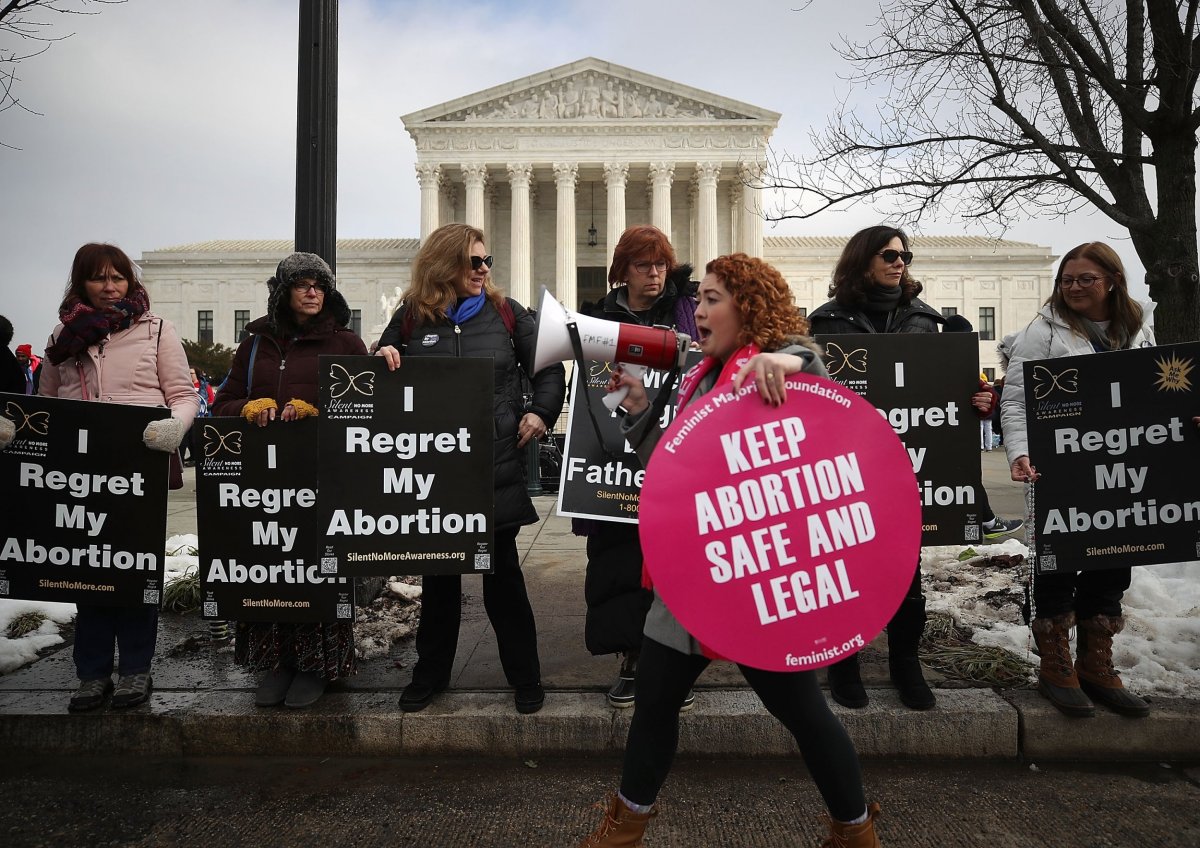Alabama's state Senate passed the most restrictive abortion bill in the country on Tuesday night, embracing legislation that could see doctors sentenced to life in prison for performing the procedure.
HB 314 passed in Alabama's Republican-led Senate with a 25-6 vote, with all those in favor being white male GOP members. It now moves to Republican Governor Kay Ivey for signature. Under the bill, abortions would be allowed only under strict conditions: if a woman's health is at "serious" risk, if an "unborn child has a lethal anomaly" or if there's an ectopic pregnancy, which occurs when a fertilized egg implants itself outside the womb.
The bill does not make any other exceptions for women and girls who fall pregnant, including in cases of rape or incest. While a woman would not be held criminally liable for seeking an abortion, doctors caught attempting to perform the procedure outside of those conditions could face up to 10 years in prison, and those caught actually completing the procedure could face up to 99 years behind bars.
Democratic state Senator Bobby Singleton pointed out on Tuesday that, in cases involving rape, a doctor could be put behind bars for decades longer than a rapist who caused an unwanted pregnancy in the first place.
Singleton referenced the case of one sexual assault survivor seated in the Senate gallery, whom he identified as Sam. Singleton said "a doctor would get more time in prison than the very man who raped Sam," causing her to fall pregnant, according to an account shared by the American Civil Liberties Union.
New York Representative Alexandria Ocasio-Cortez also hit out at the bill on Wednesday morning, noting in a tweet that, "of course," the measure included "no added punishments for rapists."
Under Alabama law, rape in the first degree is considered a Class A felony with a punishment of "no less than 10 years and no more than life or 99 years," meaning that doctors could potentially serve up to the same amount of time as offenders.
However, rape in the second degree is considered a Class B felony, punishable by 20 years or less, meaning that if a rapist were to be found guilty of second-degree rape, the maximum sentence would be nearly 80 years less than the maximum sentence imposed on doctors who have carried out an abortion, including in cases involving the rape of a child.
Whereas first-degree rape includes sexual intercourse with a minor younger than 12 years old and of the opposite sex of the defendant, when the defendant is at least 16 years old, second-degree rape applies to sexual intercourse with a minor between the ages of 12 and 15 when the defendant is at least 16 years old and at least two years older than the victim.
Condemning the bill, Democratic state Senator Rodger Smitherman said that by passing the measure, "we're telling a 12-year-old girl, who, through incest and rape is pregnant, we are telling her that she doesn't have a choice."
Mary Ziegler, a professor at Florida State University's College of Law who specializes in the legal history of reproduction and the Constitution, told Newsweek it was surprising that lawmakers would pursue such a high sentence for doctors carrying out abortions.
"Ninety-nine years is pretty high…. It seems that, in a way, abortion and rape are being kind of equated," Ziegler said. "This is Alabama, though, so homicides could get the death penalty, so it is still being treated as a lesser offense than homicide."
Ziegler also said it is important to remember that "the letter of the law only tells part of the story," with the researcher asserting that it would be difficult to imagine prosecutors sentencing a doctor to 99 years behind bars for carrying out an abortion.
Ultimately, Ziegler said, bill HB 314 "is about getting a Supreme Court case going." As Ziegler pointed out, the measure stands in conflict with Roe v. Wade, the landmark 1973 Supreme Court ruling decriminalizing abortion across the U.S.
However, Ziegler said bills like HB 314 have emerged as part of a growing effort to get anti-abortion legislation in front of the Supreme Court once again, with anti-abortion lawmakers hoping to see Roe overturned.
"I think Alabama legislators are trying to make it impossible to uphold this law without overturning Roe," she said. However, she said that in this case she was "skeptical" their strategy was going to work.
"It's hard to see Chief Justice [John] Roberts saying that this law is OK," she said. "It's even hard to see [Justice] Brett Kavanaugh saying this law is OK."
Ivey has six days to sign the legislation, which would then take effect after a six-month period.
If the governor does approve the legislation, rights organizations including the ACLU, Planned Parenthood and Planned Parenthood of Southeast, have vowed to challenge the bill in court.

Uncommon Knowledge
Newsweek is committed to challenging conventional wisdom and finding connections in the search for common ground.
Newsweek is committed to challenging conventional wisdom and finding connections in the search for common ground.
About the writer
Chantal Da Silva is Chief Correspondent at Newsweek, with a focus on immigration and human rights. She is a Canadian-British journalist whose work ... Read more
To read how Newsweek uses AI as a newsroom tool, Click here.








